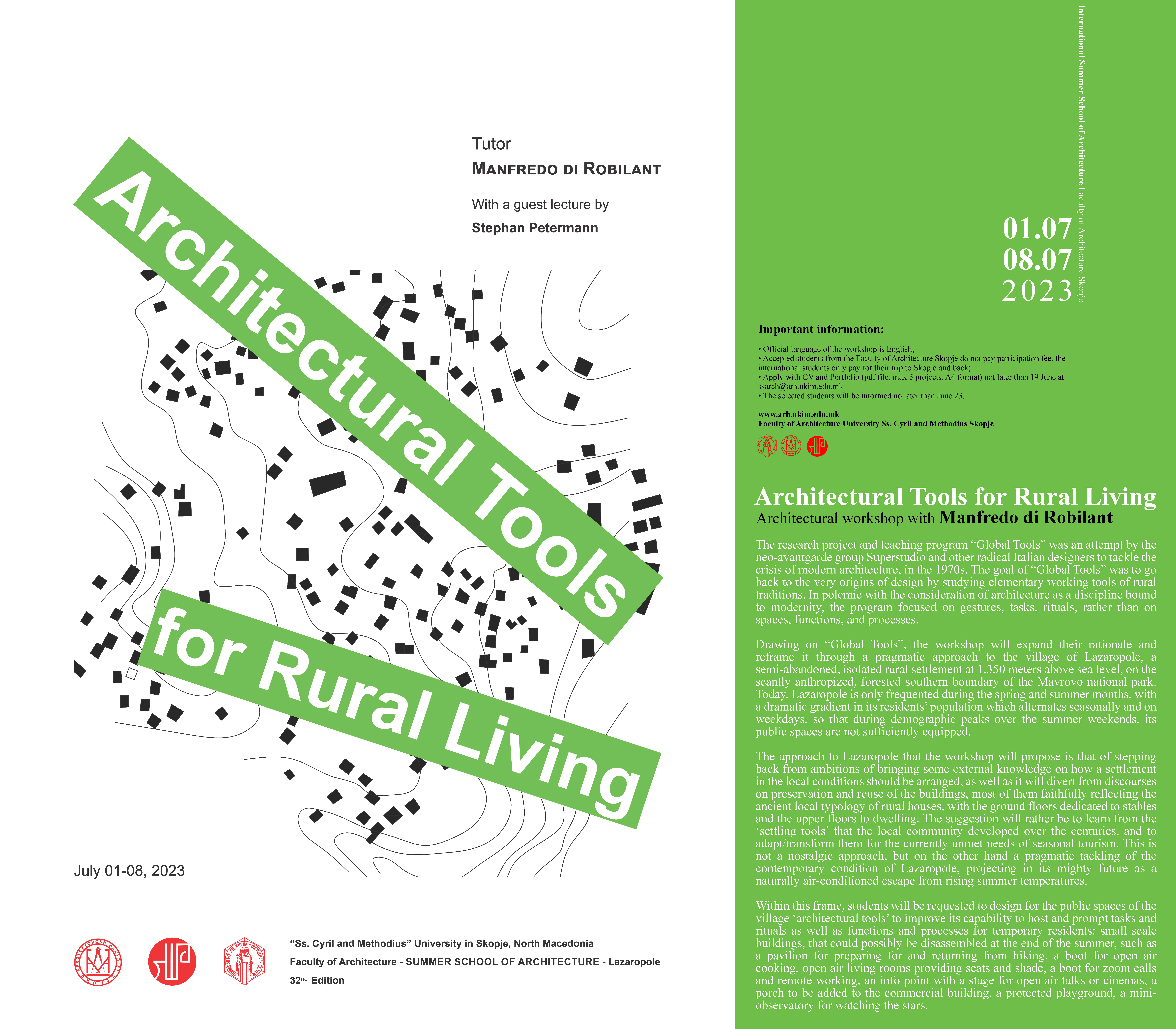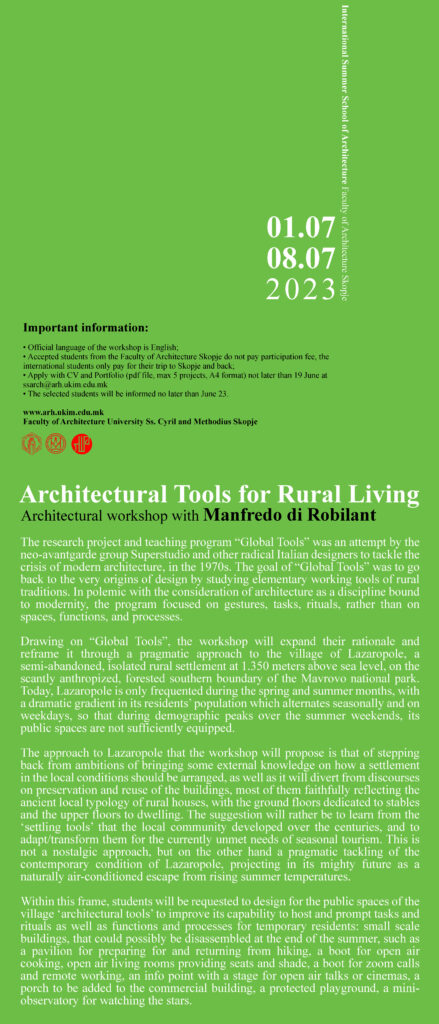

Call for Applications
July 01-08, 2023
International Summer School of Architecture
“Ss. Cyril And Methodius” University in Skopje, Faculty of Architecture,
32nd Session 2023, Lazaropole
Architectural Tools for Rural Living
Architectural workshop with Manfredo di Robilant
The research project and teaching program “Global Tools” was an attempt by the neo-avantgarde group Superstudio and other radical Italian designers to tackle the crisis of modern architecture, in the 1970s. The goal of “Global Tools” was to go back to the very origins of design by studying elementary working tools of rural traditions. In polemic with the consideration of architecture as a discipline bound to modernity, the program focused on gestures, tasks, rituals, rather than on spaces, functions, and processes.
Drawing on “Global Tools”, the workshop will expand their rationale and reframe it through a pragmatic approach to the village of Lazaropole, a semi-abandoned, isolated rural settlement at 1.350 meters above sea level, on the scantly anthropized, forested southern boundary of the Mavrovo national park. Today. Lazaropole is only frequented during the spring and summer months, with a dramatic gradient in its residents’ population which alternates seasonally and on weekdays, so that during demographic peaks over the summer weekends, its public spaces are not sufficiently equipped.
The approach to Lazaropole that the workshop will propose is that of stepping back from ambitions of bringing some external knowledge on how a settlement in the local conditions should be arranged, as well as it will divert from discourses on preservation and reuse of the buildings, most of them faithfully reflecting the ancient local typology of rural houses, with the ground floors dedicated to stables and the upper floors to dwelling. The suggestion will rather be to learn from the ‘settling tools’ that the local community developed over the centuries, and to adapt/transform them for the currently unmet needs of seasonal tourism. This is not a nostalgic approach, but on the other hand a pragmatic tackling of the contemporary condition of Lazaropole, projecting in its mighty future as a naturally air-conditioned escape from rising summer temperatures.
Within this frame, students will be requested to design for the public spaces of the village ‘architectural tools’ to improve its capability to host and prompt tasks and rituals as well as functions and processes for temporary residents: small scale buildings, that could possibly be disassembled at the end of the summer, such as a pavilion for preparing for and returning from hiking, a boot for open air cooking, open air living rooms providing seats and shade, a boot for zoom calls and remote working, an info point with a stage for open air talks or cinemas, a porch to be added to the commercial building, a protected playground, a mini- observatory for watching the stars.
